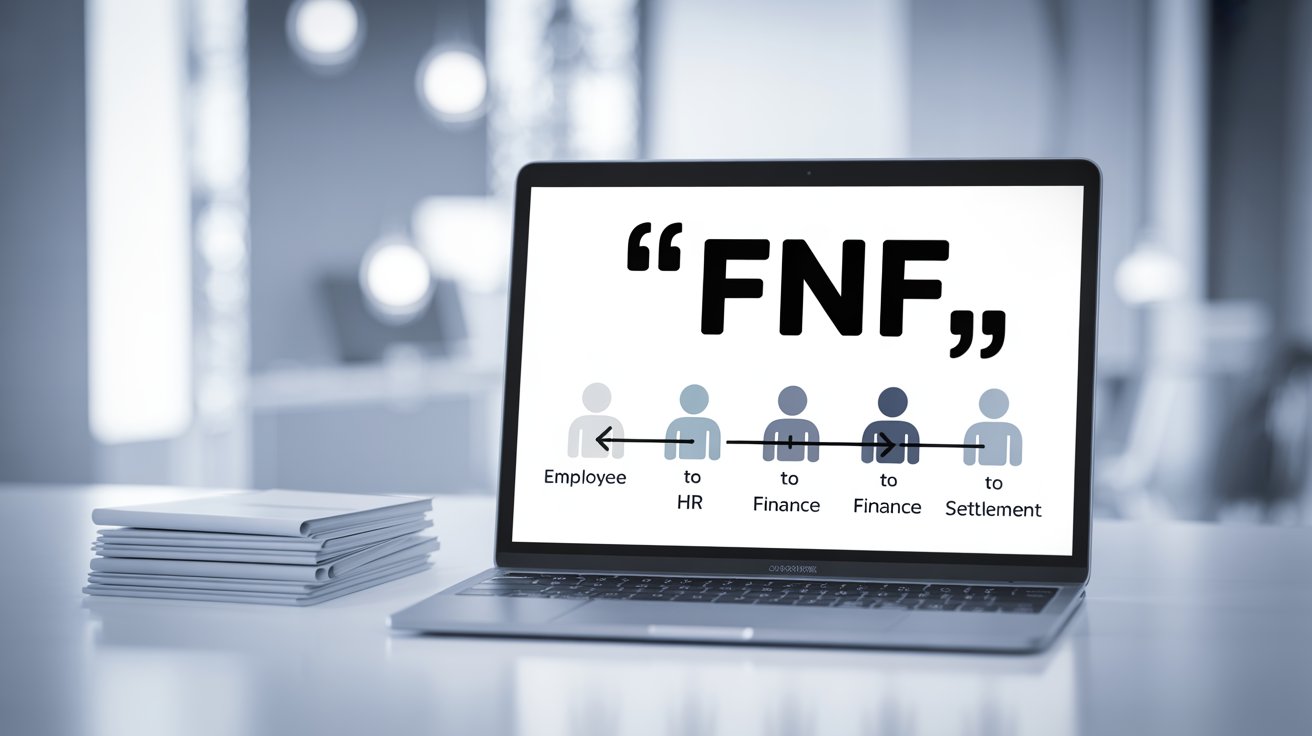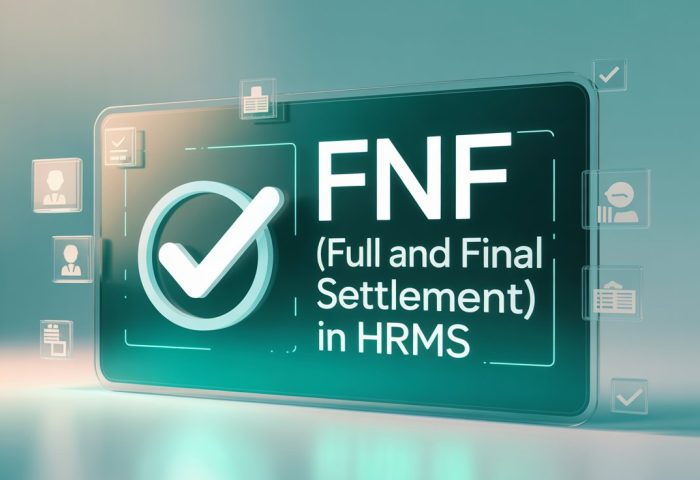In any employee life cycle, there is a point when the journey with the organization comes to an end. Whether a resignation, retirement, or termination case, FNF stands for Full and Final Settlement, which is a crucial process that satisfies the ends of legality, finance, and procedure. Managing FNF is not so easy, especially for HR professionals when done manually. This is where a superior HRMS like Doinsights would make it easy, compliant, and efficient.
This blog will cover the meaning of an FNF, how it works in an HRMS (Human Resource Management System), and the related glossary terms to keep you updated with modern HR practices.
What Is FNF (Full and Final Settlement)?
The Full and Final Settlement (FNF) is the clearing of all dues and obligations between an employer and employee at exit. This process includes the payment of:
- Outstanding salary
- Reimbursements
- Leave encashment
- Gratuity
- Bonuses or incentives
- Deductions (such as tax, PF, notice period recovery, etc.)
This process ensures that the two parties, i.e., the employee and the employer, are settled from a financial and legal view before formally terminating the existence of employment.
Components of FNF
Let’s break down what typically goes into an FNF:
| Component | Description |
| Last Working Month Salary | Pro-rata salary for the number of days worked in the final month. |
| Leave Encashment | Payment for unused paid leaves as per company policy. |
| Gratuity | Applicable if the employee has completed 5+ years (under the Payment of Gratuity Act). |
| Bonuses/Incentives | Any performance-based payments due. |
| Deductions | Includes tax deductions, provident fund (PF), loan repayments, etc. |
| Notice Period Recovery | Amount deducted if the notice period is not served fully. |
FNF Integration into the HRMS: Its Working with Doinsights

Traditionally, FNF processes were handled manually, resulting in inconsistencies, delays, and compliance issues. Acting as one of the leading HRM software in India, Doinsights automates and centralizes this entire process.
Here’s how Doinsights assists in making FNF easier:
- Auto calculations for dues, leave balances, and taxes
- Final disbursement through payroll integration
- Custom FNF workflow based on company policy
- Documents and clearances tracking (IT, Admin, HR, etc.)
- Digital approval flows to minimize manual intervention
- Audit trails and reports for legal and compliance aspects
This allows for servicing of dues on time and, therefore, improves the exit experience for employees.
Related HR Glossary Terms You Should Know
Focusing on FNF, understanding HRMS glossary terms related to the exit process is essential:
1. Exit Management
That HRMS module which manages employee resignation, clearance, exit interviews, and FNF.
2. LWD-Last Working Day
It is the final official date on which a person is employed by the company. FNF payments are calculated up to this day.
3. Notice Period
This is the period an employee should remain in service after resignation. Non-compliance can lead to recovery or waiver of FNF.
4. Leave Encashment
It is the payment made to an employee for the untaken earned leaves usually at the rate of basic pay.
5. Gratuity
It is a statutory benefit paid under the Payment of Gratuity Act, 1972 to employees who have had continuous service for more than five years.
6. Clearance Process
In most cases, before an FNF can be initiated, clearances from IT, Admin, Finance departments, etc., have to be obtained from the employee concerned stating that he/she has returned all company dues and assets.
Why Automate FNF with Doinsights HRMS?
Manual FNF processes can lead to payroll inconsistencies, employee dissatisfaction, and legal disputes. With Doinsights, you get:
- Accuracy: Automated calculation for salary and leave encashment
- Compliance: Built-in tax and statutory deduction logic as per Indian laws
- Speed: No delay in payment processing or clearance workflows
- Insights: Reports on turnover, exit reasons, and FNF status
Our clients across the country have been able to greatly cut down on the time needed to carry out FNF processes-interactive automation has helped reduce the time from 7 days to less than 48 hours.
Final Thoughts
The Full and Final Settlement process is more than just a financial transaction—it’s the last word on an employee’s journey. A smooth FNF process is what people remember, and it sets up the organization in case of future disagreement.
With Doinsights, we aim to empower HR teams through tools that intuitively make complex processes such as FNF easy, quickly done, and compliant.
Ready to Simplify FNF Processing?
Get in touch with our experts at Doinsights and find out about how their HRMS software can automate not only your FNF process but your entire human capital lifecycle.
Visit doinsights for a free demo.


